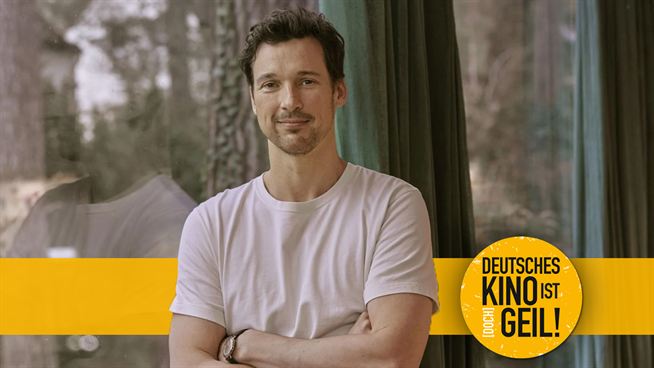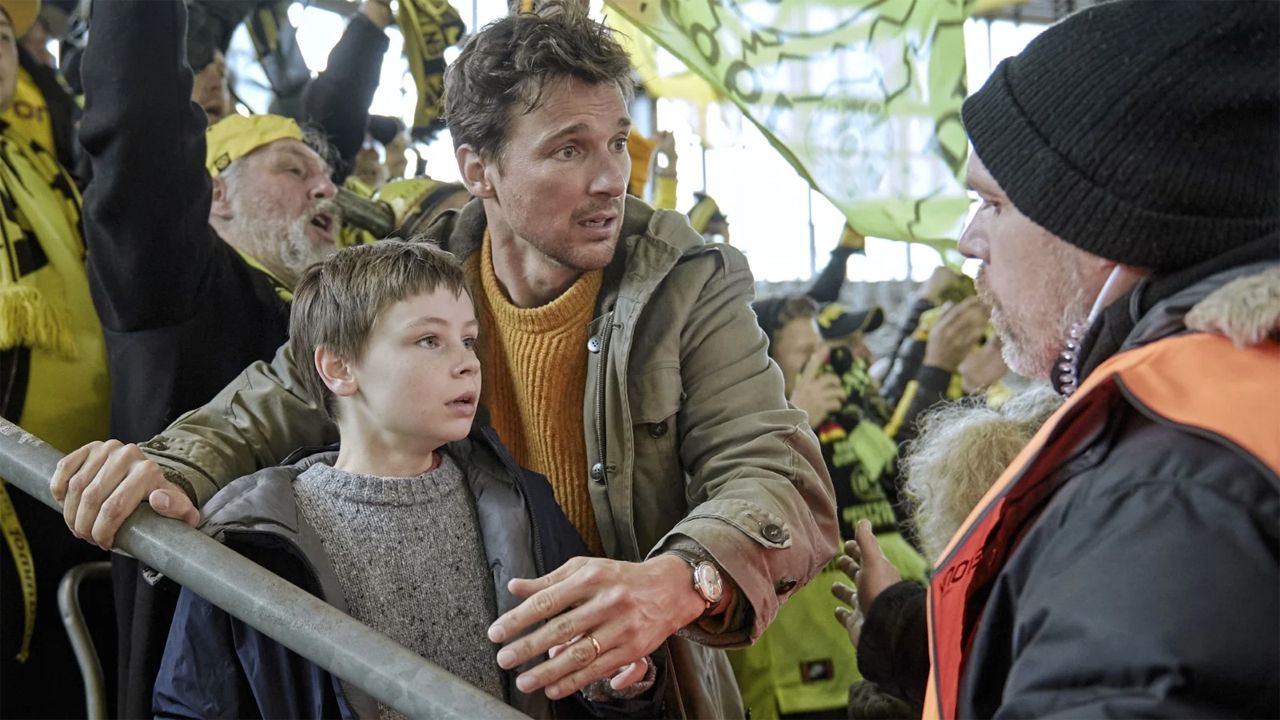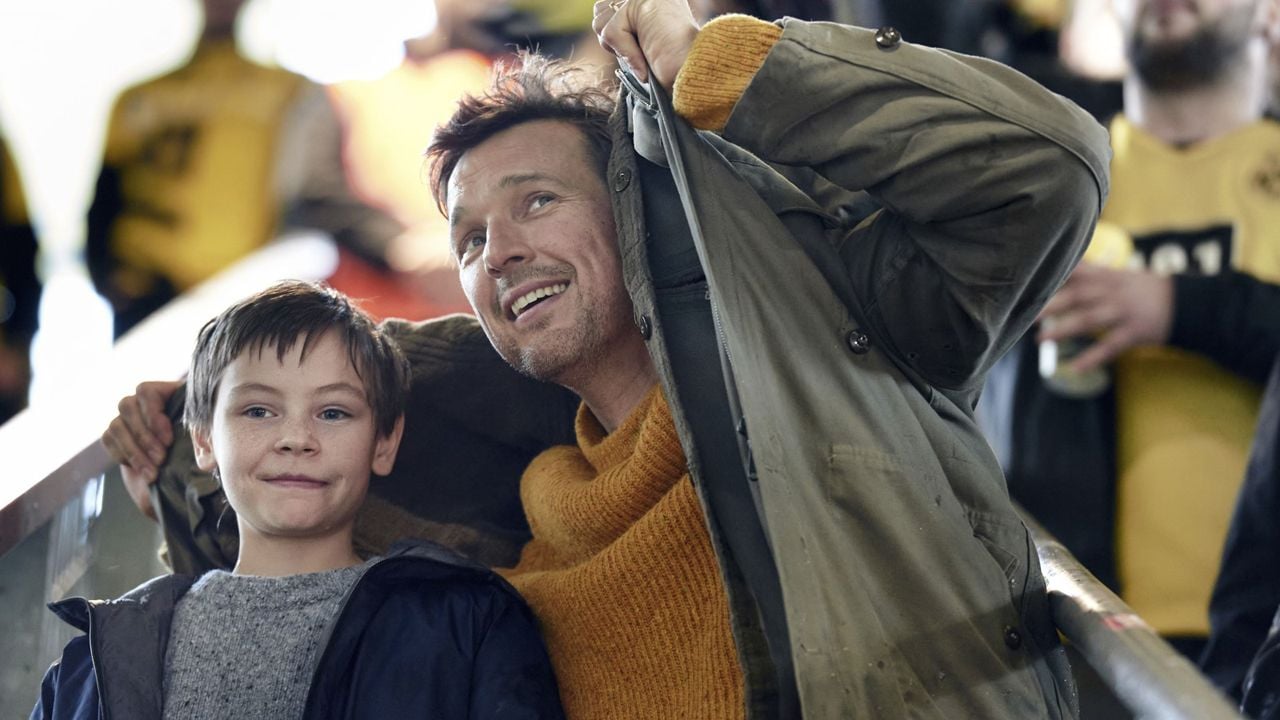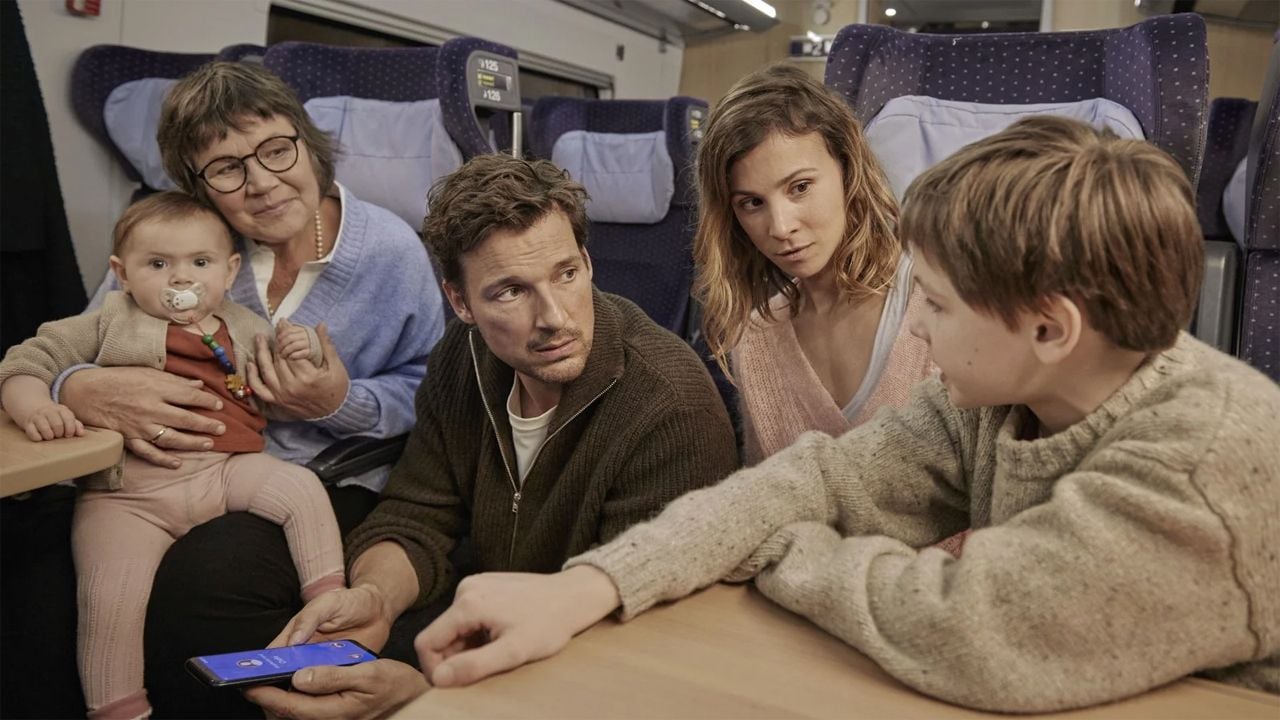
When Mirco von Juterczenka promised his son Jason that he would help him find a favorite club, he had no idea what he would unleash. Jason is autistic and lives by fixed rules, which he also applies when looking for his favorite club. And that means he wants to see all the clubs before he can decide to become a fan of them. The father and his now adult son have been traveling through the stadiums for more than ten years and report on their adventures, first in a blog and then in a book. Now the film adaptation of her story is even coming to the cinema.
From September 28, 2023 you can “Weekend rebels“See on the big screen. Florian David Fitz (“100 Things”), one of Germany’s biggest stars, plays father Mirco – and was able to discover the German football landscape for himself. The actor and filmmaker is not actually a football fan… and had many prejudices about stadiums. Because director Marc Rothemund and his crew were able to film in several original arenas, he was allowed to dismantle them very quickly.
In addition, Fitz, who also works as a director and author, explains why storytelling is so important at this time.
“I thought there had to be smells everywhere!”
Florian David Fitz: The great thing is that Mirco likes the club Fortuna Düsseldorf, but he has not yet become such a big fan. His son Jason got into it by chance because everyone around him was talking about his favorite club and he wondered what his favorite club would be like. Jason and Mirko go on a journey through the German football landscape.
Florian David Fitz: But I found that really exciting. At first I had my prejudices and thought there was a smell of old man sweat and allotments everywhere, but then it was completely different. Our first stadium was Union in Berlin. Then we worked our way up to Dortmund, where the largest stadium is. I was always struck by how loving it all seemed.
Florian David Fitz: I expected more hooligans. This behavior was also there, but what we experienced more was the love with which people entered. Their habits, their mutual support – even in small clubs. So that was new to me.

Florian David Fitz: I felt like I knew more beforehand. The big announcer was probably ‘Rain Man’. Suddenly everyone knew what autism was, but of course everyone also thought that autistic people were all island geniuses. I throw a box of matches on the table and an autistic person can tell me at a glance how many there are. Of course that is not the reality at all. The majority on the spectrum are not above average in intelligence.
The other thing we have to contend with is what the real Mirko calls “invisible disability.” It is not visible from the outside, such as a wheelchair. And so every day you meet people who think you’re just an ill-mannered brat. You have to constantly explain yourself.
Florian David Fitz: Of course, Richard Kropf, the screenwriter, had the most interaction with Mirko and Jason, and came next Marc Rothemund. Our exchange took place through questions. Is that true and is this the story that best represents you? But I mainly had contact with Richard and Marc.
Interest in exciting topics and films with substance
Florian David Fitz: Euthanasia, religion, materialism – there are so many more topics that I am confronted with through my work. I’m interested in them simply because they’re exciting. There are bigger issues that affect us all, and you don’t want to produce empty shells of films, you want them to have substance.
Florian David Fitz: Of course, every story is also about humanity. Anyone who watches the film will understand what is happening. After Corona, I realized that the social mood had changed somewhat. I always had the problem of sitting next to people on talk shows who were actually doing something, and I was the actor.
Florian David Fitz: I always thought it was unfair. Why is there so much fuss about our profession, we are just storytellers. Now I think it is very necessary that we just tell stories, and not in the sense of ‘What is the benefit?’ or ‘What does that mean?’. Maybe it’s just a matter of telling a story. Maybe the first thing is, just like you used to read a book, let us walk in someone else’s shoes for a certain period of time because it enriches our lives and we live not just one life, but several.

Florian David Fitz: Of course stories do something to us. If I had just lived my life in my little village in my little house and was even interested in that, I am a different person than if I were reading books about “Jane Eyre” and “Harry Potter” and looking at other lives . I cried or flew through clouds. My life was enriched by it. This is a good job for us storytellers.
Florian David Fitz: Because on the one hand I have a big refusal Stories of others and the desire for constant instruction from the other. You point at someone else, you do it wrong and of course you don’t wonder in that second what you are doing yourself. Now I’m thinking: maybe it’s much cooler to invite people into another story and be done with it. And if you’ve just spent a while in another life, it will do something to you. Or not. Perhaps we are much more like guides for soul journeys. Package holidays of course (laughs).
Putting yourself in the shoes of others as a built-in emotional travel voucher
Florian David Fitz: Exactly, you just have a different experience than yours. Everyone wonders: woah, how do you do that as an actor, empathize so much with other people? But ultimately the viewer in the cinema does nothing else later. These are simply mirror neurons. Empathy. That is also a gift from us humans and perhaps even a gift. A built-in emotional travel voucher.
Florian David Fitz: That is a difficult question. If I had a solution for this, I would get started on it right away. I think it’s become a bit of a cultural thing. There are great German films of every level every year. There are certainly interesting arthouse films, but even among the more commercial films there are a few that stand out every year.
And this constant complaining that German films are worthless has become a habit. We are trained to do this because we Germans like to beat ourselves up. Then comes the next objection that only comedies are made. Nonsense! People decide for themselves what they want to see, and no one would make comedies if no one watched them. In this respect this is not a good argument.

Florian David Fitz: I don’t even know what’s going to happen. I haven’t seen one. We are more concerned with making films than watching films. And when I’ve just written another script, I can’t even read other scripts that I have to read for work because I just can’t get out of my own story. I hardly watch movies.
Florian David Fitz: There were some really great series like ‘The Pass’. At the cinema I loved “Wunderschön” by Karoline Herfurth, “The Teacher’s Room”, “Red Sky”, “Sisi and I” and “Nothing New in the West”.
Watch “Weekend Rebels” now: German cinema is [doch] cool!
As already explained in the interview with Florian David Fitz, “Wochenendreleggen” is our film of the month for September 2023 as part of our initiative “German cinema is (still) great!”. To counter the often expressed ‘bias of bland German films’, the editors of FILMSTARTS have decided to start this initiative: every month we select a German film that we particularly liked, inspired or fascinated, for its theatrical release – regardless its size – editorially seen as a blockbuster (i.e. with a number of articles, its own podcast episode and so on).
These are also films for which we especially recommend that you go to the cinema. You can watch ‘Weekend Rebels’ from September 28, 2023.
Author: Markus Tschiedert
Source : Film Starts
I am Dawid Malan, a news reporter for 24 Instant News. I specialize in celebrity and entertainment news, writing stories that capture the attention of readers from all walks of life. My work has been featured in some of the world’s leading publications and I am passionate about delivering quality content to my readers.







